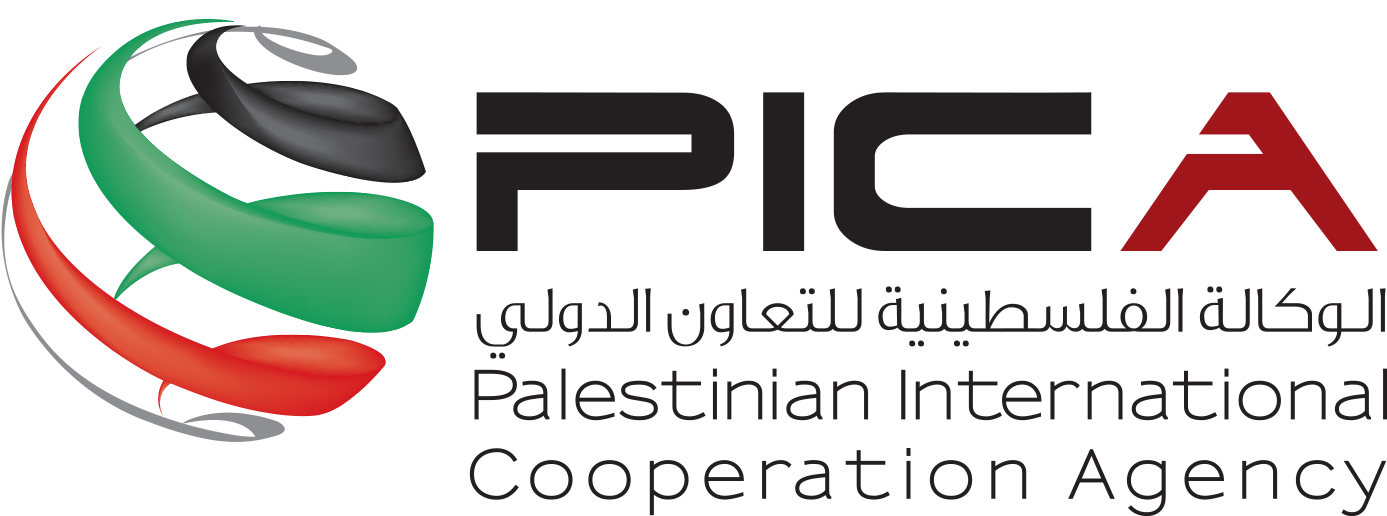
Pretoria / South Africa
As part of its plan to strengthen its presence in the African continent and its contribution in implementing development programs for countries of the south, PICA held a number of meetings with African and international officials in the capital Pretoria.
Based on the instructions of the Minister of Foreign Affairs and Expatriates, H.E Dr. Riad Malki, the Palestinian delegation met with Director General of the Middle East and North Africa Department at the Ministry of Foreign Affairs and Cooperation, Ambassador Zanil Makina, and Palestine Desk Officer, Ismael Esso, to discuss methods and ways to enhance joint cooperation between the two countries. The Palestinain delegation included Ambassador Hashim Dajani, Ambassador of the State of Palestine to South Africa, PICA Director General, Imad Al-Zuhairi, 1st Secretary of the Palestinian Embassy to South Africa, Hassouna Al-Dremili and Diplomatic Attache, Khaled Abu Qare.
PICA Director General, Imad Al-Zuhairi, said that the meeting was an important opportunity to thank the leadership and people of South Africa for their support to Palestine in various international forums, particularly their recent position in downgrading South Africa level of diplomatic representation to the occupying state. The meeting also included discussing arrangements for joint development programs that serve other countries that fall within the interests and priorities of both parties. This, consequently, helps to achieve common interests and contribute to the enhancement of development policies for the countries of the south in accordance with the goals of international development 2030.
On the other hand, ambassador Hashim Al-Dajani expressed the importance of joint cooperation and the programs that PICA carries out, especially with the Republic of South Africa as the central and largest country amongst the South African countries. Thus, South Africa is capable of making partnerships in the fields of health, agricultural and others which will in turn be offered to the neighboring countries. Regarding the relationship with the Turkish Cooperation and Coordination Agency (TİKA), Ambassador Dajani emphasized on the importance of the partnership between the two agencies to implement joint projects. TİKA has a regional office in Pretoria that can help in implementing PICA development programs.
The African official welcomed the Palestinian delegation and praised the role played by PICA as an essential arm of the public diplomacy of the State of Palestine. She also expressed her appreciation for the Palestinian leadership decision to establish PICA despite the suffering of the Palestinian people who live under occupation and go through continued violation of their legitimate rights. Moreover, she stressed on the importance of such programs in Africa and the readiness of related departments in South Africa Ministry of Foreign Affairs including South Africa Development Department that is responsible on development programs, where they agreed on developing a proposal containing a road map for development programs and activities targeting other African countries. These programs are intended to be implemented in the coming period.
The Palestinian delegation also met with TİKA office coordinator, Mohammed Akef Sekkersi, and his assistants to discuss the possibility of cooperation to implement a number of programs in the medical and agricultural fields in the neighboring countries of South Africa including: Lesotho, Namibia, Swaziland, Botswana and Zimbabwe.
The Palestinian and Turkish agencies agreed on preparing project documents and necessary administrative arrangements that clarify the nature of the projects and the partnership, which will be completed at the earliest possible opportunity. They also agreed on going towards setting joint priorities and initiating development programs that reflect the interests of both agencies in order to serve other parties that are part of both agencies and countries’ priorities.

